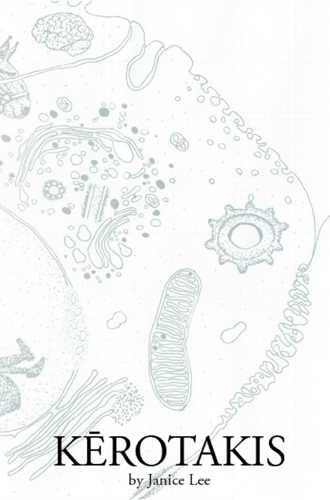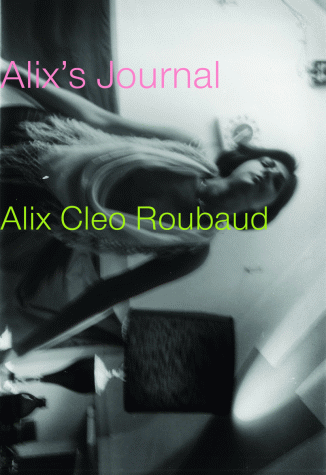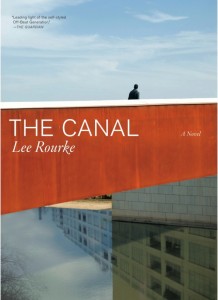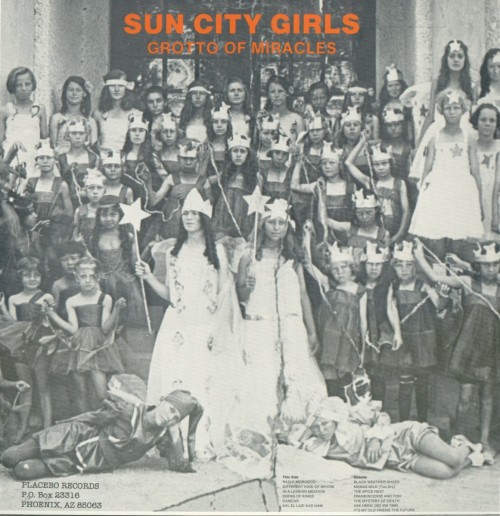The Spectacle of Spectacles: A Response to Perec’s “On Spectacles”
I.
In fifth grade, a little girl whose name I don’t remember called me tacky—and I was, good god back then I was the oddest confluence of patterns and colors, bowed skirts with striped t’s, without a hint of the irony hipsters today sport—and so my older brother took me shopping. I didn’t need glasses back then, but he needed a new pair so we stopped at a little spectacle boutique, and I tried on the cutest pair of specs, equipped with rounded tortoise-shell frames, practically wire thin, that hooked around the ears. Back in 1992, I wished my vision would go awry, just so I could look intelligent and stylish. Keep in mind my distorted sense of fashion, which I have yet to shake.
Three years later, I needed glasses, my vision had completely deteriorated, though I hadn’t noticed, except that I began falling down arbitrarily, a habit that’s stretched my ankles beyond repair, and to this day, I fulfill a prophecy of falling down annually. It’s embarrassing and painful and debilitating. But when it came time to get those glasses I’d wanted so badly before, it was sister who took me, and although she’s quite fashionable, I ended up with the most hideous glasses—to large, disc-shaped, odd colors—or at least I thought they were and never wore them, such is a story of first glasses.
In high school, late high school, I got my first pair of square plastic frames, tortoise-shell, and despite my very flat bridge, I found the right pair and style. Now, when I was seventeen, I don’t remember square frames as being “hip.” None of my friends had them, preferring instead oval wire frames, usually colored, but this past January, I gave a reading in Amherst, and I stopped in a coffee shop to do “work” (and meet the very cool Jedidiah Berry), and I looked around. Hot damn, there were twelve people there, including me, ten of which had on square plastic glasses (the other two didn’t wear them), eight people had silver Mac Book Pros (two had black Mac Books), I counted three people reading Foucault and five people with Moleskines displayed in some way. And I think back to &Now or AWP, somehow glasses becoming the sign of intelligensia and creativity, commodified, like Apple products, easy, and I’ve fallen for the trick.
1. Gigantic is new for June and on the search for submissions!
2. Les Figues announces Not Content!
3. I just ate too much chocolate cake and it hurts!
4. So much Artaud!
Charming, but explain the wrist watch

“Time is not a thing, thus nothing which is, and yet it remains constant in its passing away without being something temporal like the beings in time.”
— Martin Heidegger, Being and Time (1927)
I’ve been accused of finding photos which incriminate authors, which I’ll gladly admit to, but the above photo/quote mash-up illustrates my skepticism towards philosophy, especially ontological mathy ones. Dude needs to relax and have some weisse bohnensuppe (German bean soup). It’s awesome ripping apart the palpable world on page, but Heidegger needs time just like everyone else — when his appointment with his proctologist is, never mind that they’ll only find beans and thyme.
“CAN YOU PRINT IT OUT?” NO.

but it hurts my eyes :(
“Can you print it out?” is a question that belongs in the last century.
People ask this question a lot. They want to receive a paper manuscript, not an email attachment. Never mind that printing a manuscript is going to be a waste of anywhere from 100 pages to 1000 pages of paper, depending on the length of the work in question, how it’s spaced, and whether you printed single-sided. Never mind that it costs money (don’t even get me started on Kinko’s).
I used to think it was how “things were done.” Of course this editor wants 400 pages to arrive at her office in a heavy envelope via courier. It’s more legitimate. And it’s hard to read off a computer screen.
Well, no more. Let me assert a few things: READ MORE >
Two Books I Loved Lately: Janice Lee & Alix Roubaud
KEROTAKIS by Janice Lee [Dog Horn Publishing]
 Since my father’s dementia got worse, reading has been whitish. The words come in and hobble around and yet I’m often not wholly up in brain: what sticks is as if in cycle of him, little licks and bumps of old; and yet more often, where the image hits hardest like an erasing brain would, I get more. KEROTAKIS probably came into me as sheer and cleanly as I could have asked. Like Anne Carson pushed into a machine’s dreamgame, fudging the weird heart of science against the mush of time, this book goes beyond the sprawl of wanting less what and more how from a text object. What comes of color and of cramming or uncramming nameless matter among space. Via this object, while following 4 characters (a cyborg, a past scientist, the traveling brain of the scientist, and the Mother of time) through a series of beautifully spare, Beckettian-on-Burroughs narrations, Lee uploads us with aphorism, monologue, black space, image, footnote, fact (?), dialogue and arsenals of memory-smear that in their beautifully sequenced order open up some new section of the head between the head(s). “It is as impossible to produce a metal out of a plant as to make a tree out of a dog or a baby,” the book says, but what the book has made out of sentences is not not not not wholly freaking and alive.
Since my father’s dementia got worse, reading has been whitish. The words come in and hobble around and yet I’m often not wholly up in brain: what sticks is as if in cycle of him, little licks and bumps of old; and yet more often, where the image hits hardest like an erasing brain would, I get more. KEROTAKIS probably came into me as sheer and cleanly as I could have asked. Like Anne Carson pushed into a machine’s dreamgame, fudging the weird heart of science against the mush of time, this book goes beyond the sprawl of wanting less what and more how from a text object. What comes of color and of cramming or uncramming nameless matter among space. Via this object, while following 4 characters (a cyborg, a past scientist, the traveling brain of the scientist, and the Mother of time) through a series of beautifully spare, Beckettian-on-Burroughs narrations, Lee uploads us with aphorism, monologue, black space, image, footnote, fact (?), dialogue and arsenals of memory-smear that in their beautifully sequenced order open up some new section of the head between the head(s). “It is as impossible to produce a metal out of a plant as to make a tree out of a dog or a baby,” the book says, but what the book has made out of sentences is not not not not wholly freaking and alive.
Alix’s Journal by Alix Cleo Roubaud [Dalkey Archive]
 These are the journals of the photographer, philosopher and young wife of Oulipian Jacques Roubaud, Alix, who died at 31 of a pulmonary embolism. Made up of fragments and ruminations and photographs chronicling the last 4 years of her life, these texts and images are simultaneously mindaching and sublime. In constant stress over her mind, her struggle with aesthetics, her relationships, her body, her sense of impending death, these languages seem to recognize the black oncoming, and the blank spaces in the light there before. “Fear for nothing,but after all so many things are for nothing and so it is. this evening I am not/anything at all but I write to you as I can,before myself to bed,despite the feverish frenzies of the past two nights I like this bed until very soon,until very soon (not sent).” Between the texts the images, often of the home, her gorgeous body, in bed with Jacques, forms, light, fill the space and in the white space of the language with even more air. This is a flesh machine; an apparatus in praise of Wittgenstein and in self hell, curling to make something. I don’t believe I’ll be able to put this on my shelf; it needs to stay loose, around: too passionate an object, a guidebook to some hole.
These are the journals of the photographer, philosopher and young wife of Oulipian Jacques Roubaud, Alix, who died at 31 of a pulmonary embolism. Made up of fragments and ruminations and photographs chronicling the last 4 years of her life, these texts and images are simultaneously mindaching and sublime. In constant stress over her mind, her struggle with aesthetics, her relationships, her body, her sense of impending death, these languages seem to recognize the black oncoming, and the blank spaces in the light there before. “Fear for nothing,but after all so many things are for nothing and so it is. this evening I am not/anything at all but I write to you as I can,before myself to bed,despite the feverish frenzies of the past two nights I like this bed until very soon,until very soon (not sent).” Between the texts the images, often of the home, her gorgeous body, in bed with Jacques, forms, light, fill the space and in the white space of the language with even more air. This is a flesh machine; an apparatus in praise of Wittgenstein and in self hell, curling to make something. I don’t believe I’ll be able to put this on my shelf; it needs to stay loose, around: too passionate an object, a guidebook to some hole.
June 15th, 2010 / 11:40 am
Lee Rourke in New York
 All you Brooklyn dwellers should come out to Melville House tonight and be the first kids on the F train to read Lee Rourke’s The Canal, a strange explosion of a book that is out as of today. Lee is in town from London & there will be a launch party tonight at Melville’s space in Dumbo, complete with a reading, beer, wine, snacks and people. 7 pm. 145 Plymouth St. Come say hi.
All you Brooklyn dwellers should come out to Melville House tonight and be the first kids on the F train to read Lee Rourke’s The Canal, a strange explosion of a book that is out as of today. Lee is in town from London & there will be a launch party tonight at Melville’s space in Dumbo, complete with a reading, beer, wine, snacks and people. 7 pm. 145 Plymouth St. Come say hi.
An interview I did with Lee will be posted here in the not so distant future. Today? Tomorrow? Who can be sure?
Say What?
My friend recently received this rejection (?) from magazine-I-shall-not-name. Your opinion?
Dear (name withheld),
Thank you for submitting your work to the (name withheld)
While your submission made it into the later stages of my consideration. After having a chance to reread your submission, at least once aloud, I must tell you that I will not be able to use any of your poems in this upcoming issue.
I know that a rejection almost always seems to be a personal thing–but seriously, I am only rejecting the poems you sent in this submission. If you’re poems made it this far into the process then I think you possess the talent and I would recommend/encourage you submit during the next reading period.
Best,

